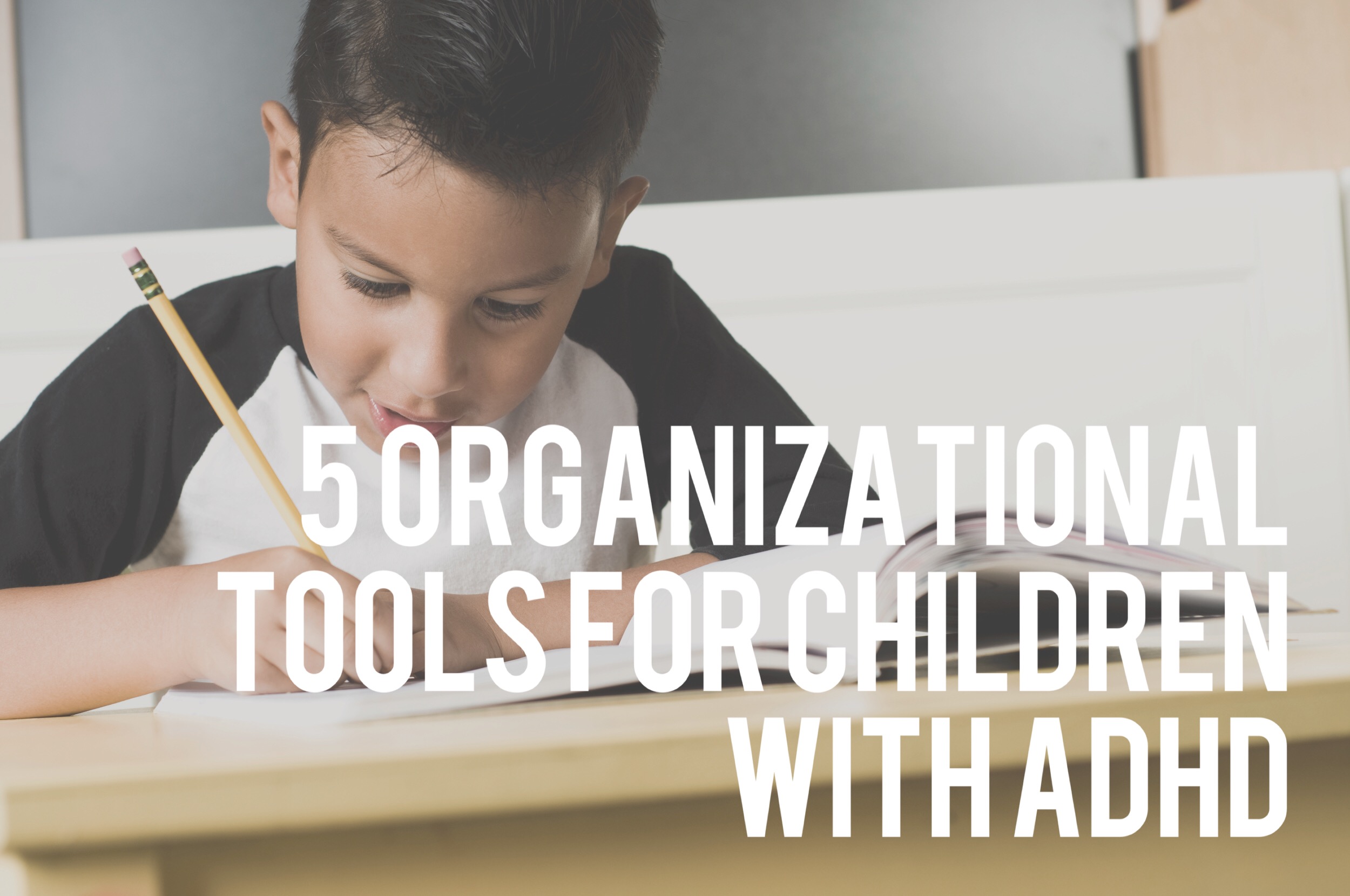Colorado Center for Assessment and Counseling has plenty of resources to help children with ADHD stay organized and on task.
When parents bring their children with ADHD to our office, most of the time it is so they can find support and clarity. School is always a challenge, standardized testing rarely reflects their child’s intelligence, and their grades are falling through the floor semester after semester. So, when a parent chooses to pursue a psychological evaluation for their child, they not only want an answer to their questions, they want practical tools and strategies so their kid can succeed.
Oftentimes, the biggest change needed is in proper organization, and not in studying or testing techniques. If your child is organized in his mind and at his work area, success is a lot easier to find. We thought it would be helpful to share our Top Five organizational tools for children with ADHD.
1. Set Clear Goals
If you start with the problems and work forward, it’s really easy to be overwhelmed. But, if your child takes the time to think through what it is she wants to accomplish, she can then think backward and figure all that needs to be done to meet the goal.
Say your child needs to read 30 pages of a chapter, write an essay at the end of the month, and answer five out of seven questions at the end of a chapter section. Then after all of that, there will be a chapter test that accounts for 20% of her grade.
Those are the tasks, but what is the goal?
If the goal is to accomplish all the assigned tasks at hand, she can then take some time to think through what is most important, what is most urgent, and what is the simplest thing to do first. If the goal is to understand what was so important about the taxes the British placed upon the American colonies, then things will look differently. This is a great moment for you to step in with some training and planning.
2. Plan and Write Down Your Tasks
Developing a consistent organizational system, and making it a habit, can make all the difference for children with ADHD. Some kids prefer a paper planner to organize everything from their daily schedule, study schedule, and morning routine, while others prefer keeping calendars and notes on their phones with alerts and reminders.
Everything in it’s place, and a place for everything.
When tasks and goals are written down, anxiety goes down, because now it’s in front of them instead of banging and clanking around in their head. Instead of frantically moving from one task to the next as they remember it, they can move from one task to the next.
3. Work Time and Break Time
A daily schedule with clearly set times for homework, and down time is a big help for children with ADHD. Also, so is a micro-version of a daily schedule. When your child is on a task, it can be helpful to take frequent and consistent short breaks.
- Study for 10 minutes
- 5 minute break
- Study for 10 minutes
- 5 minute break
When there aren’t a lot of breaks, boredom and frustration can set in, leaving your child to feeling either overwhelmed or distracted from the task at hand. Consider setting an egg timer next to your child while he studies. This way he has a clear and tactile reminder of the task at hand and break time.
4. “First, I will…”, “Next, I will…”, “Then, I will…”
Do you remember when your child was a toddler and would try to eat everything in front of them at once? So, you taught them to finish their bite of food in their mouth before taking another bite, so they didn’t choke. This is the same idea, just now food is switched out with homework.
One task at a time.
This ability to set aside and prioritize is a huge skill that will not only save countless hours of fruitless studying and working, but will also bring your child’s stress and anxiety under control. When kids can learn to place their attention on just one task, putting aside all the rest, they realize that they are able to control themselves and their work. It’s a huge boost for their esteem, but it will take some time and guidance to learn.
5. Recognize When You’re Overwhelmed
Before the lashing out, shutting down, and catastrophizing happens, it be a big help for your child to learn when they are beginning to feel overwhelmed. Whenever you see your child struggling with a task, it can be helpful to gently intervene and ask if they want to take a break, or try it some other way. While struggling with new information is part of the learning process, there is a point in every person where the struggle is no longer helpful. It’s different for every child, and every child handles it differently.
We’re Here to Help!
Organization and learning new ways of doing familiar things takes time to master and understand. These skills and strategies may take a lot of effort to implement, and it may end up looking differently for your child than for others. Part of the success is finding out what exactly will be helpful for your child with ADHD. This is where our psychological evaluations are able to provide support and clarity for parents and children with ADHD. Contact us today to schedule an appointment. Call our offices at: (970) 889-8204 or email us at: contact@coloradocac.com


Comments 1
My nephew has pretty severe ADHD and finds it really hard to focus in school. My sister doesn’t want to medicate him that much though because she doesn’t like the idea of medication dulling him. I’ll share your article with her so she can use some techniques like the short study sessions followed by a short break to help her son through school.